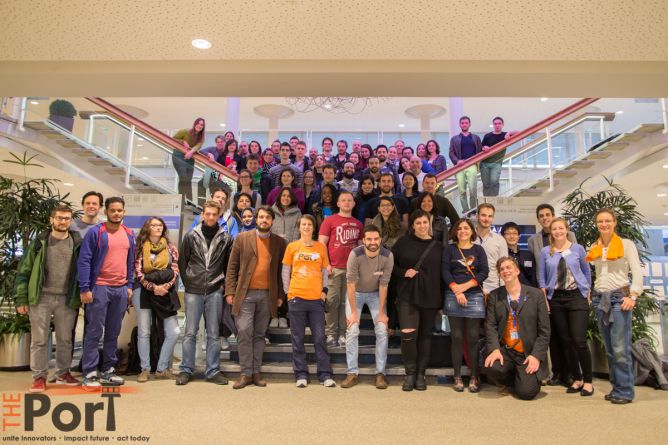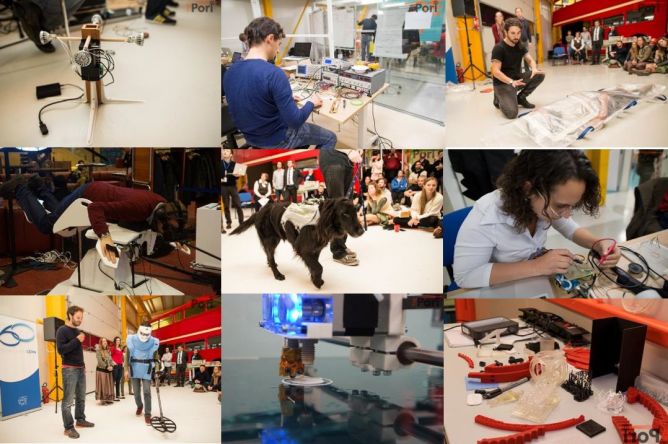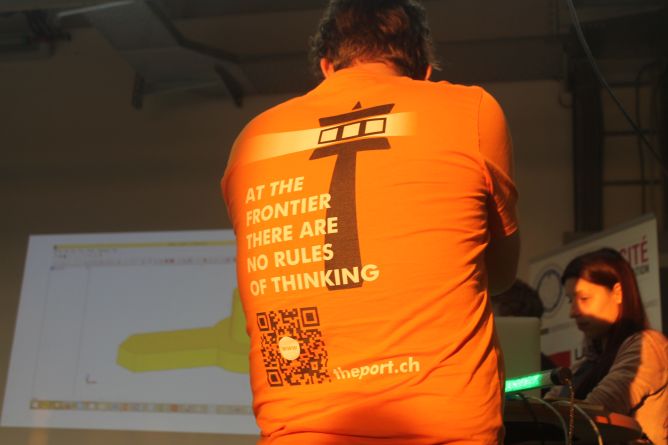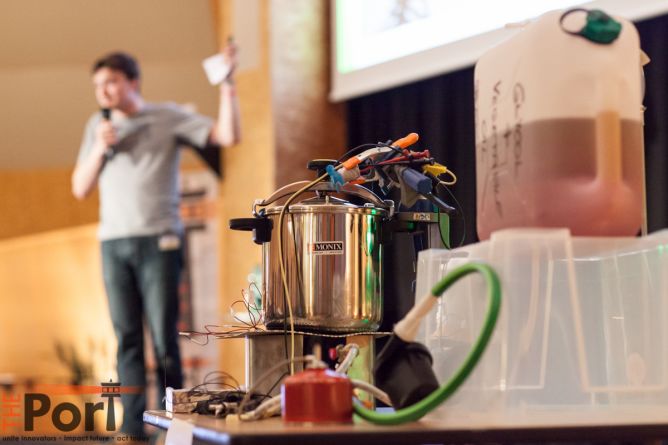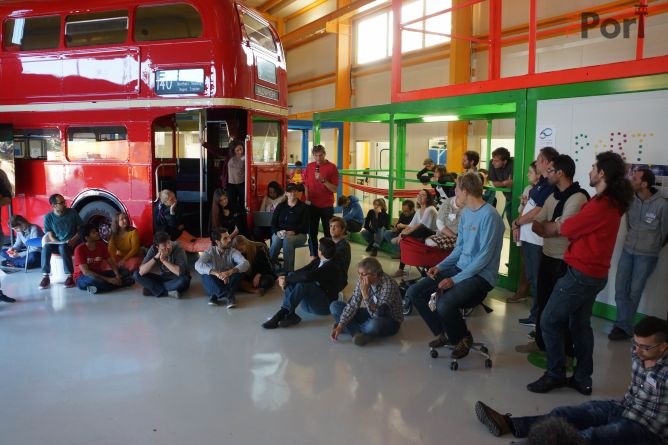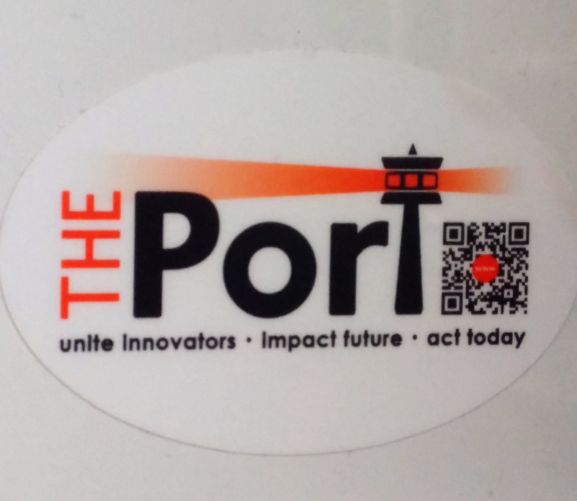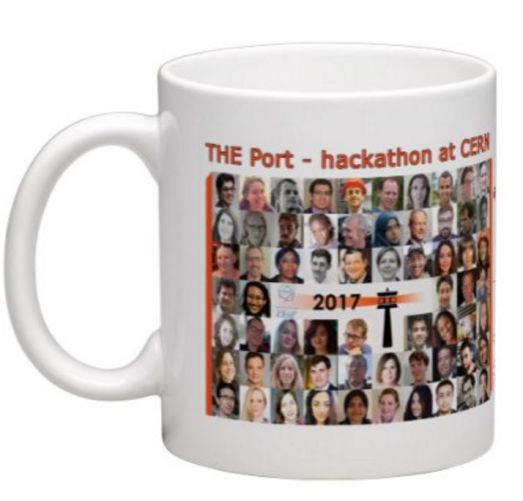Support humanitarian innovation!
Why we need your support?
THE Port is an independent Swiss nonprofit association ruled by its members and based on volunteer working. While we receive generous inkind donations from CERN and the Globe of Science and Innovation for holding the Humanitarian Hackathon, the costs for the event have to be covered via other means.
Funding for this year’s edition has fallen short and we need the missing funds to provide food, drinks, accommodation and prototyping material for our 50 participants, 12 mentors, 7 coaches and 10 volunteers.
Your support will have a major impact on the success of our humanitarian endeavour!
Even a small donation can make the difference!
Humanitarian Hackathon 2017 - 6 to 8 October - CERN
60 particpants from around the globe
12 mentors and field workers
10 coaches from THE Port
5 humanitarian challenges
In collaboration with: Terre des Hommes, Global Humanitarian Lab, Hôpitaux Universitaires de Genève, Changemakers Lab, MIT D-Lab, Impact Hub Geneva, Global Shapers Community
Featuring a special participation of Cuisine Lab on Saturday 7 at CERN - IdeaSquare
Final presentations on Sunday 8 in the Globe of Innovation and Science, in front of an audience of 250 guests from NGOs, private sector, social entrepreneurship, academia and the media!
SUPPORT HUMANITARIAN INNOVATION!
Your support will have a direct impact on the success of our hackers by providing them food, drinks and accommodation; and also, the prototyping material they’ll need to concretise their ideas.
Every year, we organize at CERN the Humanitarian Hackathon, a 60-hour intensive brainstorming workshop, where the most brilliant and creative minds find tangible solutions to humanitarian issues.
Challenges tackled within our hackathons result in the creation of working prototypes which we then promote to be implemented in the field.
This year, five teams of experts will tackle specific challenges that have been proposed by partnering organizations and individuals:
- Renewable Energy App for Rural Electrification
In countries with poor energy access there is often limited local expertise in specifying renewable energy solutions. How can one help local technicians to design and develop a renewable energy solution for communities in need? One possible solution will be developing an app that uses open source tools and data to guide a local expert during the design and development of a renewable energy system in a community.
- WASTE MANAGEMENT IN REFUGEE CAMPS
The misuse of recycling practices in refugee camps encumbers quality of life. Because of the lack of environmental education and proper motivation, a lot of recyclable materials end up in landfills. An initiative from Lesvos Island came up with an idea to develop a mobile application that communicates with a specially designed recycle bin. Recognition and reward system will provide an easy way to promote environmental education and thus resulting to cleaner camps.
- AGE ASSESSMENT FOR MIGRANT CHILDREN
Migrant children without documents to prove their age are especially vulnerable to hazardous forms of work, early marriages, underage recruitment into fighting forces or being treated as an adult in criminal proceedings. The currently used age determination techniques are questionable in many ways, and have a 2-years error margin, while the main target population of juveniles is 14-18 years old. It is required to develop the reliability of the currently used methods and possibly find new, more accurate ways of age assessment.
- CHEAP SONIC WOBBLE-BOARD FOR LOWER LIMB AMPUTEES
Lower limb amputation as consequence of war and conflict, has catastrophic effects in terms of an individual’s basic movements and functions, their mental and physical well being and their societal contribution. We aim to create a portable, affordable and «smart» wobble-board that provides visual and auditory feedback to the patient and can be produced according to local availabilities and restrictions.
- WEARABLE FOR PARKINSON DEVELOPMENT MONITORING
Tracking motor symptoms of Parkinson’s disease in real-time may help not only reduce the progression of the symptom by better targeting drugs but also reveal the evolution of the disease. A new hardware device developed together with friendly user interface and big data analysis algorithms will open the door for new clinical researches.
Our unique curated model of hackathons
OUR METHODOLOGY:
Step 1: Throughout the year, NGOs, international organizations, field workers and individuals propose challenges for which they seek technological solutions.
Step 2: Challenges are carefully selected and shaped.
Step 3: Handpicked participants with outstanding expertise in their domains join us to dedicate their brains to tackle our challenges.
Step 4: After six weeks of preparation, the teams meet at CERN to produce a working prototype in less than 60 hours.
All prototypes are created under an open license,enabling them to go further towards development and implementation. So far, in this regard, a high percentage of the teams have created their own companies or organisations.
Who we are
THE Port Association is a nonprofit organisation based at CERN and exclusively run by volunteers.
With very reasonable costs, and within three days, we are able to deliver unprecedented technological solutions that otherwise would require lots of time and resources to become reality.
